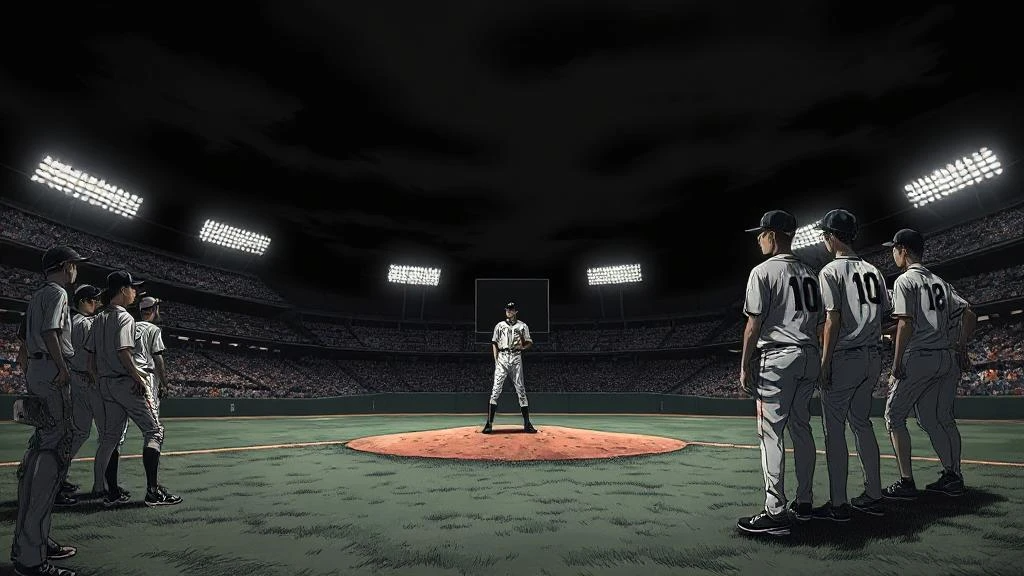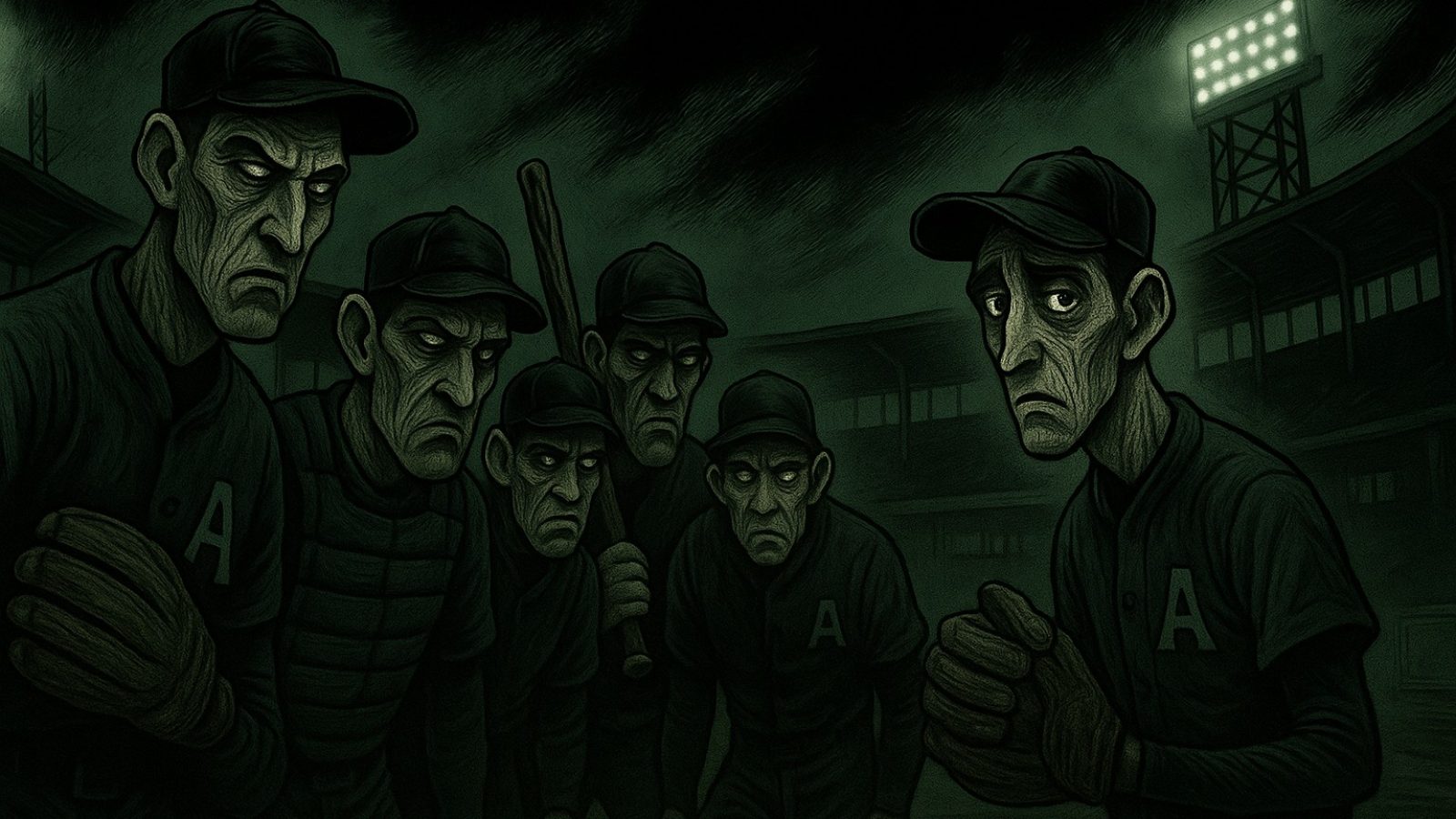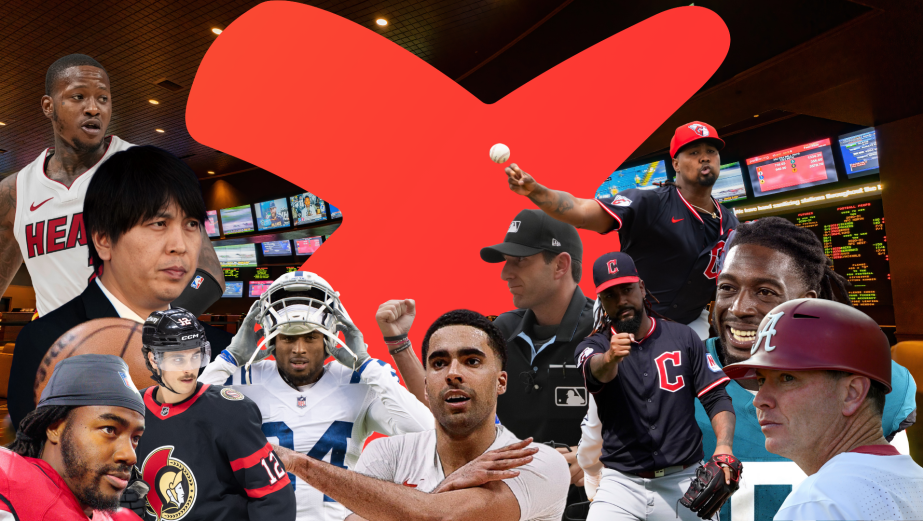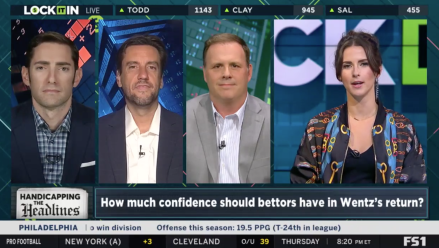Seth McClung knows what a sports betting scandal looks like from the inside. He’s worried about what he’s seeing from the outside right now.
In 2013, then a 32-year-old reliever who had spent time with Tampa Bay and Milwaukee, McClung was grinding out what would be his last pro season in the Chinese Professional Baseball League.
It was a circuit where a mobster nicknamed Windshield Wiper had been conspiring for years to fix games. The league was still sorting out the aftermath of a public relations catastrophe, with popular players banished and heavily supported teams disbanded.
“It was ugly,” McClung told InGame.
So ugly that McClung was forbidden by his team to stretch out with a jog around the block one afternoon once they arrived at the ballpark.
It had become common practice in Taiwan for mob-affiliated gamblers to approach players outside the purview of team officials – who in some cases were also compromised – about conspiring for pay or by coercion to manipulate an upcoming game. In the void of information or suitable guardrails, a decades-old tradition of corruptible baseball continued.
“They really kind of lost control of the entire game. They really didn’t know who was doing what,” McClung said. “They were releasing guys over it. And it was a lot of conspiracy, that this guy’s throwing games when all of a sudden he just had a bad game. Or did he just have a bad game? You lose that confidence in the player.”
Major League Baseball is rapidly approaching its crisis of confidence, from fans and likely from players who watch as teammates and opponents are investigated – most recently Cleveland relievers Luis L. Ortiz and Emmanuel Clase – for conspiring to manipulate so-called microbets in games.
Baseball is not alone. Suspicion gnaws at fan faith in all sports. And bettors fume at the notion of money stolen from them. Assurances that the system is working when cheaters are caught ring hollow.
“I think the suspicion is very bad,” Amani Toomer, a responsible gambling advocate who won Super Bowl XLII as a wide receiver for the New York Giants, told InGame.“ Just the fact that it’s on people’s minds now, it’s just a lot different.”
How bad choices happen
The constructive conceit required of professional athletes can make cheating feel like not cheating at all, McClung said. Bounce a first pitch in a save opportunity? What’s the harm? There’s plenty of outs and strikes in reserve. If you’re that good.
That certainly had been Clase’s brilliant MLB history. He’d led the American League in saves the previous three seasons and finished third in Cy Young voting in 2024 with a 0.61 ERA.
McClung doesn’t know Clase. But he knows high-achiever athlete mentality.
“I think if you talk long enough, you can talk yourself into it,” he said of intentionally throwing a ball.
And they could rationalize that the object isn’t to throw the game, just win the bet with one extra pitch.
“I think what happens is a guy is like, ‘I’m going to throw this ball here,’ ” McClung said. “They think, ‘I’m good enough to be 1-0 [in the count] and it doesn’t really matter.
“But then all of a sudden, maybe he’s 1-0 and the next pitch he tries to get the strike over, he gives up a home run. We all know that’s a possibility. But it’s one of those things in the mentality of how a guy justifies it.”
Clase and Ortiz are scheduled to remain on paid administrative leave through Aug. 31 as MLB continues to investigate. Meanwhile, their lockers have been emptied at Progressive Field.
Bounced pitches draw suspicion
Players spend careers observing, running through mental scenarios that could eventually provide an edge. Revolutionary advances in video and analytics have transferred this spy craft to video screens for scrutiny on auto-repeat.
The suspicious moments are right there if you suspect something.
“If a guy just kind of out of the blue bounced [a pitch], back when I was playing, we would just be like, ‘Oh, he’s got too much pine tar on his hand’ or something like that,” McClung observed. “In today’s day and age, our scouting reports, thorough isn’t the word. I mean, it’s dead-on, what everybody does. And if something’s out of whack, we definitely know. Bottom line: We know.”
But that doesn’t mean they’re cheating. McClung said both a starting pitcher and a closer would usually be excused bouncing their first pitch in an effort not to throw a “good strike” to a hitter ready to hack away.
The speed of suspicion, McClung said, is directly proportional to the frequency of the bounce and the talent of the suspect.
Clase was amid a down year by his standards with 24 saves in 30 opportunities and a 3.23 ERA when he was put on leave. But the real oddity was awaiting discovery deeper, according to Trevor May, another former Major League reliever who analyzed irregularities in Clase’s pitch metrics in a YouTube video entitled: “Is gambling a bigger problem in baseball than we think?”
Ortiz and Clase are reportedly under investigation for several “non-competitive” pitches on 0-0 counts, which corresponded with unusually vigorous wagering on that microbet on particular days.
While not drawing conclusions, May marveled that Clase, an elite strike-thrower with well-above-average “competitive location” overall, was just better than the MLB average on 0-0 counts. He found that Clase’s 0-0 strike rate had dropped markedly from last season.
“His 0-0 strike rate, first-pitch strikes, which are one of the most important statistics for a pitcher, is 60.3%,” May observed in the video. “Last year, it was 66.4%. Now, he had one of the most amazing reliever years ever, and 66% on first-pitch strikes is pretty high. The league average is about 62 or 63. He’s 3% below average.
“But what’s fishy about that is 0-0 is also his lowest strike percentage of all counts. Every single count that exists, that is the one he throws the least amount of strikes in. That’s interesting.”
If teammates know, will they tell?

Clubhouses and locker rooms are insular habitats. Only the elite among the elite manage to make it there, even if they’re the utility middle infielder. Few stay there very long. Protecting that chair in front of a locker stall means everything. But protecting their own individual careers and legacies can become entwined with protecting the group, no matter what is festering within those walls. Or how much it bothers them.
Knowledge of teammates tanking prop bets would divide a clubhouse, McClung said. But to this point, no player has informed on a teammate under a sports betting investigation, according to multiple industry sources.
“Half the guys are going to be, ‘Ah, well, whatever.’ But some of the guys are going to be ‘That’s bulls***. We’re out here trying to win for something bigger than the $1,000 you’re going to win on a prop bet or whatever you’re winning for your buddy back home,’ ” McClung said. “You talk about integrity. It takes that out of it. You’re out there trying to win a championship.”
Clase is by far the highest-profile player investigated by MLB for possible gambling improprieties, calling into question why someone who signed a five-year, $20 million contract extension would risk everything for such a pittance. Michael Porter Jr., the older brother of Jontay Porter, who was banned from the NBA in 2024 for manipulating prop bets in a far-reaching conspiracy, said some players who “come from nothing” could be tempted to tip acquaintances for quick playoffs.
And for players who realize their short shelf life, the lure of added income could be tempting, said McClung, a member of the Major League Baseball Players Alumni Association who stays connected to the game.
“If you’re playing for the Colorado Rockies, and you’re a guy who’s going to play two years in the big leagues, maybe [they do it],” he said. “It’s an attractive, easy thing to do. It’s hard to turn away.”
Of note: the Guardians are 22-11 since Ortiz’s suspension, and 10-3 since Clase’s, moving within a game of a wild-card spot.
When the scandal is a revenue stream
Players understand the value of sports betting partnerships as a revenue stream for professional sports leagues. But, McClung said, “the only people getting rich here are Major League Baseball and the bettors.”
He likened the current gambling situation to MLB’s steroid era when fans clambered to watch Mark McGwire and Barry Bonds (confirmed performance-enhancing drug users) and Sammy Sosa (who admitted he “made mistakes”) mash home runs with astounding regularity.
Teams sold scores of tickets and beer. Players were awarded lucrative contracts. MLB and its teams absolved themselves of the scandal over time, and many of those players with Hall of Fame credentials remain on the outside, looking in.
In this sports betting crisis, MLB has led the investigations into itself, though it noted in the Guardians’ suspensions were “per an agreement” with the players union.
“[MLB] was getting the money off of this,” McClung said of the steroid era. “If you really want to kill PEDs, if you want to kill the [players] betting on sports, the punishment doesn’t go to the player solely. It goes to the team for allowing it.
“The next team who signs that [guilty] guy should get punished, too. So, that’s a double, triple kind of layer to say we’re going to let [sportsbooks] be a sponsor, but if you get caught, everybody’s getting punished.”
Will NFL suffer from microbet scandal?
MLB is so far alone in dealing with microbet controversy in the four major U.S. professional leagues.
While the NFL has dealt with numerous gambling infractions – including betting on games – leading to player suspensions, none revealed publicly has involved game manipulation. The league has also revised its gambling policy to make it clear to players where and on what they are allowed to bet. It even softened a penalty for Detroit Lions wide receiver Jameson Williams in 2023 when he was found to have placed bets on college football games while on team property.
The NBA scandal roster of players, notably banned-forever former Toronto Raptor Jontay Porter, includes those tanking on pre-game prop bets at the behest of a gambling ring.
Football, with 22 moving variables on any play, is considered much more difficult to manipulate in-game than one-on-one sports or those that are segmented like baseball, golf or tennis.
MLB executive Kenny Gersch was in charge of business development/gambling in 2019 when he described baseball as “a series of discrete events …. and each one of those events is a betting opportunity.” This has proved to be the case. And they all center around the pitcher, one of the most vulnerable characters in microbetting.
At the same time, nothing happens in football without the impetus of a quarterback, but one of the few microbets that they can influence, integrity experts say, is “run/pass” on a given play. And the myriad of factors underlying a resulting audible – including a coach calling for a timeout – make it, in the opinion of integrity experts, a risk without assurance of reward.
Because quarterbacks audible so often, determining misdeeds on questionable plays with spikes in betting is difficult, even when integrity firms bring in football experts to examine replays.
MLB extra vulnerable to microbetting
A source told InGame that the integrity industry concludes “pretty definitively” that sports or events dependent on the actions of one individual are more susceptible to manipulation, particularly tennis, boxing, and mixed martial arts. Game-fixing or point-shaving scandals such as those by the 1919 Chicago White Sox and the 1981 Boston College men’s basketball team required multiple players and participants who could potentially reveal the plot.
The advent of microbetting – although it is not yet widely popular with bettors – in the last two years has added baseball in-game markets to the list of vulnerable sports. While the Clase and Ortiz investigations apparently involve first-pitch ball-or-strike bets, any hanky-panky in the first-pitch speed betting market might be even harder to detect without a drastic spike in money wagered. In theory, a starting pitcher, knowing the general speed of all their pitches, could choose a first offering tailored to fall in the proper bet range, while still attempting to throw a competitive pitch.
Because microbetting remains a small part of the national sports betting handle, spikes in activity are often instant and obvious markers of suspicious activity. That would include scores of new accounts opening in a state on the same day with most deposit amounts going to an obscure microbet.
But with only about a quarter of legal U.S. sportsbooks currently offering microbets, some of the action in manipulated markets figures to be going offshore, beyond oversight.
Legislators in Ohio and New Jersey have begun steps to prevent sportsbooks from offering microbets.
“The vulnerability of a microbet isn’t about the sport — it’s about the structure.
Markets where a single player controls the outcome, like a pitcher’s first pitch or a tennis serve, may seem more susceptible to manipulation — but they’re actually the easiest to flag. These outcomes are binary, isolated, and frequent, which makes irregular patterns stand out quickly, especially when you layer in risk management services like ours.
At Kero, nearly everything is algorithmic — this isn’t manual trading or old-school price setting. Our systems analyze more than just results: they track how bets are placed and how individual entities — players, teams, and outcomes like pass vs run — interact with market behavior.
While all of this is designed for pricing accuracy, the byproduct is that manipulation attempts are often immediately flagged — assuming the underlying bet data is available. With the right tech, micro markets don’t weaken integrity — they can actually enhance it.”
When Is Pete Rose 2.0?
McClung, who remains connected to the sport as a youth coach, feels fortunate to have played before the rise of online sports betting, particularly props and microbets. He said he never suspected malfeasance from a teammate but thinks he would have spoken up if he did. He’s glad that belief wasn’t tested.
But he has a sense of dread for modern MLB, its players and the legacy of the game. He predicted something bad could be coming. And it could dwarf Clase.
“Well, we haven’t had the big one, right? I mean, we had Pete Rose,” he said while noting that more recent generations of players did not feel the impact of his scandal.
“You’re starting to smell little ones. And, man, if you smell s*** in the corner, there’s probably s***. There’s somebody probably out there, man. There really is.”







